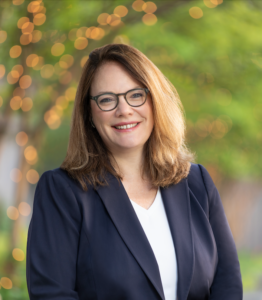Leaders at nine of the nation’s most influential nonprofit funding and infrastructure organizations are pushing funders to loosen their guidelines on grants during the COVID-19 pandemic crisis.
The nine organizations issued a joint statement calling on foundations to significantly increase grant spending during this crisis. The statement was issued jointly by the leaders of BoardSource, the Center for Effective Philanthropy (CEP), the Council on Foundations (COF), Grantmakers for Effective Organizations (GEO), Hispanics in Philanthropy (HIP), Independent Sector (IS), the National Center for Family Philanthropy (NCFP), the National Committee for Responsive Philanthropy (NCRP), and United Philanthropy Forum (UPF).
The statement comes after a push by the COF to get foundations onboard to increase funding which has resulted in leaders at more than 400 foundations agreeing to do so.
In the statement, the leaders acknowledged these extraordinary times. “In order for philanthropy to respond adequately to this moment, endowed private foundations will need to challenge conventional thinking about spending and increase their giving for a period of time. I am pleased to see announcements in recent days that suggest that some foundations are doing just that,” they said via the statement.
The statement continued: “Yet what nonprofits need most right now is more money. Without rapid and meaningful infusions of additional resources, many organizations will have to dramatically pare back programs and services or fold their operations entirely — and the results for the economy, vulnerable populations, communities, and progress on crucial issues will be devastating.”
The statement echoes much of what the COF has been pushing. Posted on the COF website is a statement, a policy pledge and a list of foundations already signed on.
“The rapid spread of COVID-19 has created a global health and economic crisis that is testing every one of us. We know that the shocks of this ‘new normal’ are severe and unanticipated for our sector and grantee partners,” according to the posting. “As leaders in philanthropy, we recognize the critical need to act with fierce urgency to support our nonprofit partners as well as the people and communities hit hardest by the impacts of COVID-19.”
Over the days, weeks, and months ahead, each of the foundations pledge to:
- Loosen or eliminate the restrictions on current grants. This can include: converting project-based grants to unrestricted support; accelerating payment schedules; and not holding grantees responsible if conferences, events, and other project deliverables must be postponed or canceled.
- Make new grants as unrestricted as possible, so nonprofit partners have maximum flexibility to respond to this crisis. We will also support organizations created and led by the communities most affected that we may not fund currently.
- Reduce what we ask of our nonprofit partners, postponing reporting requirements, site visits, and other demands on their time during this challenging period.
- Contribute to community-based emergency response funds and other efforts to address the health and economic impact on those most affected by this pandemic.
- Communicate proactively and regularly about our decision-making and response to provide helpful information while not asking more of grantee partners.
- Commit to listening to our partners and especially to those communities least heard, lifting up their voices and experiences to inform public discourse and our own decision-making so we can act on their feedback. We recognize that the best solutions to the manifold crises caused by COVID-19 are not found within foundations.
- Support, as appropriate, grantee partners advocating for important public policy changes to fight the pandemic and deliver an equitable and just emergency response for all. This may include its economic impact on workers, such as expanded paid sick leave; increasing civic participation; access to affordable health care; and expanded income and rental assistance. It should also include lending our voices to calls to action led by grantee partners, at their direction and request.
- Learn from these emergency practices and share what they teach us about effective partnership and philanthropic support, so we may consider adjusting our practices more fundamentally in the future, in more stable times, based on all we learn.










